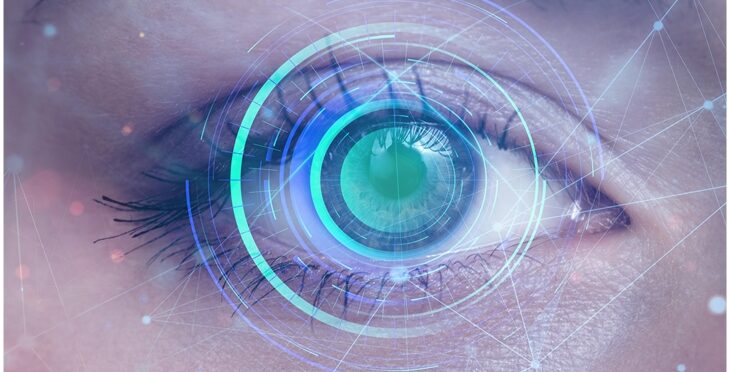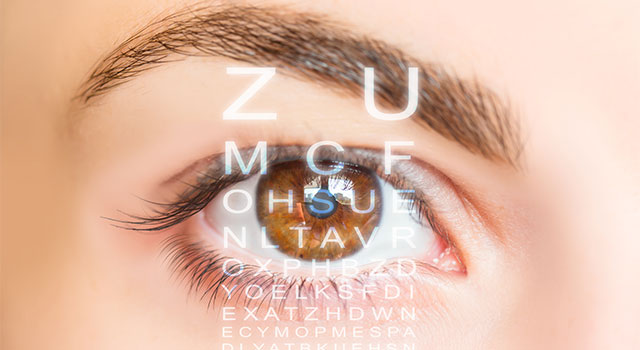Neighborhood Glaucoma Service Near Me: Relied On Professionals for Eye Wellness
Neighborhood Glaucoma Service Near Me: Relied On Professionals for Eye Wellness
Blog Article
Recognizing the Various Eye Issues Dealt With by Specialized Eye Treatment Professionals
In the world of eye treatment, specialized specialists play an essential role in detecting and dealing with a vast array of eye problems. As we get started on this exploration of the different eye conditions resolved by specialized eye care specialists, it ends up being obvious that the detailed web of eye wellness holds a myriad of remarkable understandings waiting to be revealed.
Usual Refractive Mistakes
Refractive mistakes are common aesthetic conditions created by a flaw in the eye's capability to properly concentrate light, resulting in obscured vision. Astigmatism is identified by an irregularly designed cornea, resulting in distorted or blurred vision at all distances. Presbyopia is an age-related condition where the lens sheds its versatility, making it difficult to concentrate on close objects.
These refractive errors can be remedied with different techniques, including eyeglasses, get in touch with lenses, or refractive surgical treatment. Eye treatment experts play a vital role in detecting and handling refractive errors to aid individuals achieve clearer vision and improve their lifestyle.
Age-Related Eye Problems
One of the most prevalent age-related eye conditions is age-related macular degeneration (AMD), a condition that causes main vision loss and can make tasks like analysis and driving challenging. Cataracts, one more common problem amongst older individuals, cause clouding of the eye's natural lens, leading to blurred vision. Routine eye tests with specialized eye treatment specialists are critical for very early discovery and monitoring of these age-related eye conditions to maintain vision and keep ocular wellness as individuals expand older.
Vision-Threatening Conditions
Vision-threatening illness incorporate a range of severe ocular conditions that have the potential to dramatically affect a person's sight and overall visual function. These conditions present a risk of irreversible vision loss if not immediately detected and dealt with by specialized eye treatment specialists. Some typical vision-threatening diseases consist of glaucoma, diabetic person retinopathy, age-related macular deterioration (AMD), and retinal detachment.
Glaucoma is a team of eye problems that damage the optic nerve, usually due to high intraocular stress, leading to outer vision loss and prospective loss of sight if left untreated. AMD is a dynamic problem influencing the macula, leading to main vision loss.
Very early discovery, routine eye exams, and prompt treatment are crucial in handling vision-threatening illness to protect vision and preserve lifestyle. Specialized eye treatment specialists play a crucial duty in diagnosing, treating, and taking care of these problems to stop permanent vision loss.

Corneal Disorders
Corneal disorders include a range of problems that impact the transparent front component of the eye, referred to as the cornea. These problems can cause discomfort, visual disturbances, and in extreme cases, vision loss. One common corneal disorder is keratoconus, where the cornea thins and bulges outward into a cone shape, triggering astigmatism and blurred find out here vision. Corneal dystrophies, such as Fuchs' dystrophy, result in gradual vision loss because of unusual down payments in the cornea. Corneal abrasions, frequently triggered by injury or foreign things, can lead to pain, soreness, and sensitivity to light. Furthermore, infections like keratitis can irritate the cornea, potentially bring about scarring and vision problems otherwise quickly dealt with. Treatment for corneal conditions differs depending upon the details problem but might consist of my website medications, get in touch with lenses, or in severe cases, corneal transplants. Routine eye examinations are important for very early discovery and monitoring of corneal conditions to protect vision and eye wellness.
Neurological Eye Conditions
Neurological eye problems include disorders that influence the link in between the eyes and the brain, influencing visual processing and general eye function. These conditions can show up in numerous ways, influencing vision, eye motions, and also the coordination between the eyes. One common neurological eye problem is optic neuritis, identified by inflammation of the optic nerve resulting in vision loss, color desaturation, and pain with eye movement.
An additional significant condition is nystagmus, where the eyes make repeated, uncontrolled activities, influencing visual acuity and deepness understanding. In addition, problems like amblyopia, typically described as "careless eye," result from abnormal visual advancement in very early youth, leading to decreased vision in one eye.
Neurological eye problems need customized treatment from experts like neuro-ophthalmologists who have know-how in both neurology and ophthalmology. Diagnosis typically entails a comprehensive eye assessment, imaging research studies, and partnership with neurologists to attend to the underlying neurological issues read review impacting the aesthetic system. Therapy techniques can include medicine, vision treatment, or in extreme cases, medical treatments to take care of these complicated conditions successfully.

Verdict
To conclude, specialized eye care professionals deal with a large range of eye problems, including common refractive errors, age-related eye problems, vision-threatening illness, corneal conditions, and neurological eye conditions - refractive surgeries in al. By understanding these numerous problems and seeking appropriate therapy from eye treatment experts, individuals can keep ideal eye wellness and vision. It is essential to focus on regular eye assessments and adhere to suggested treatment plans to maintain and secure one's vision for the future
Report this page